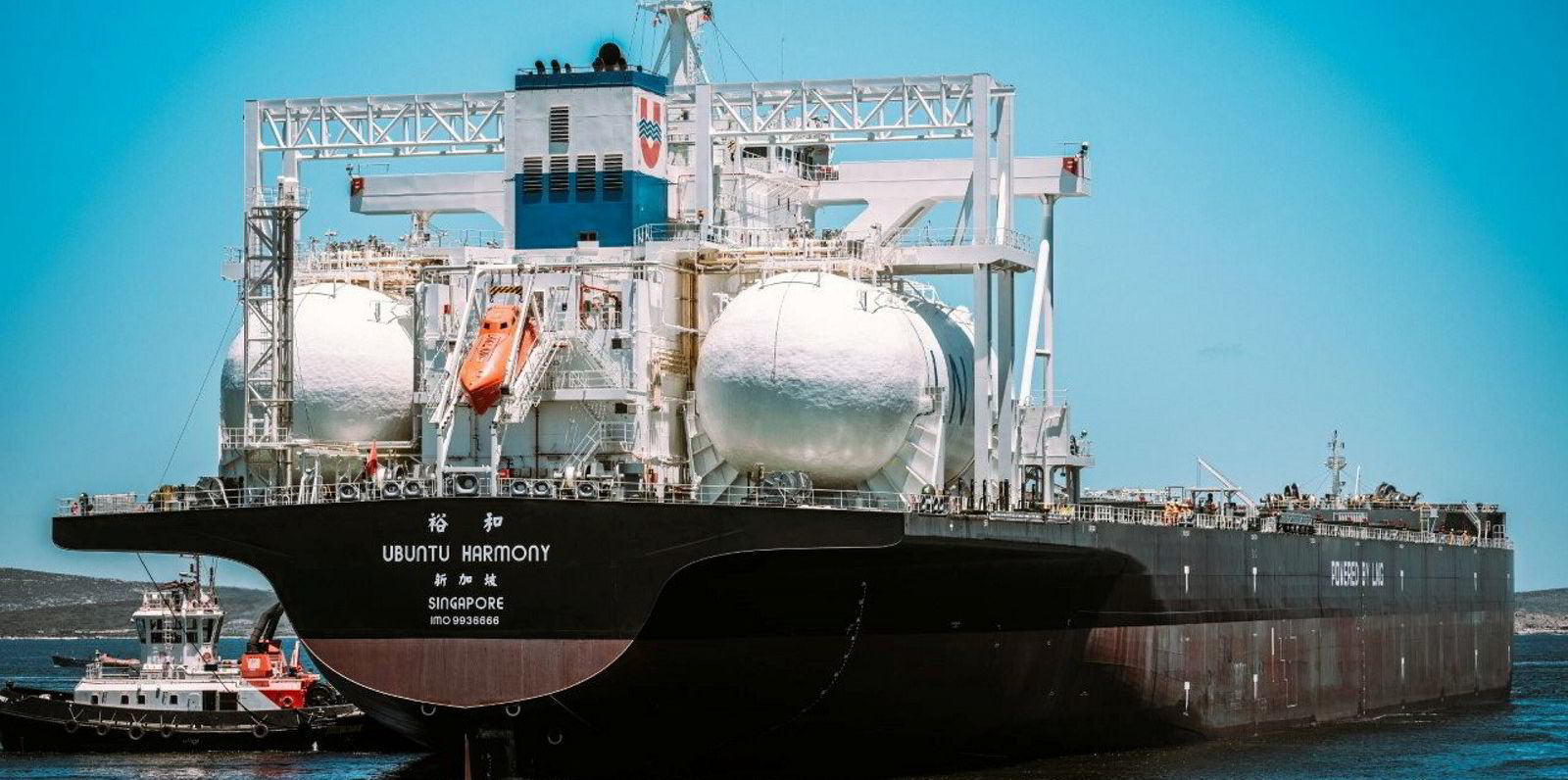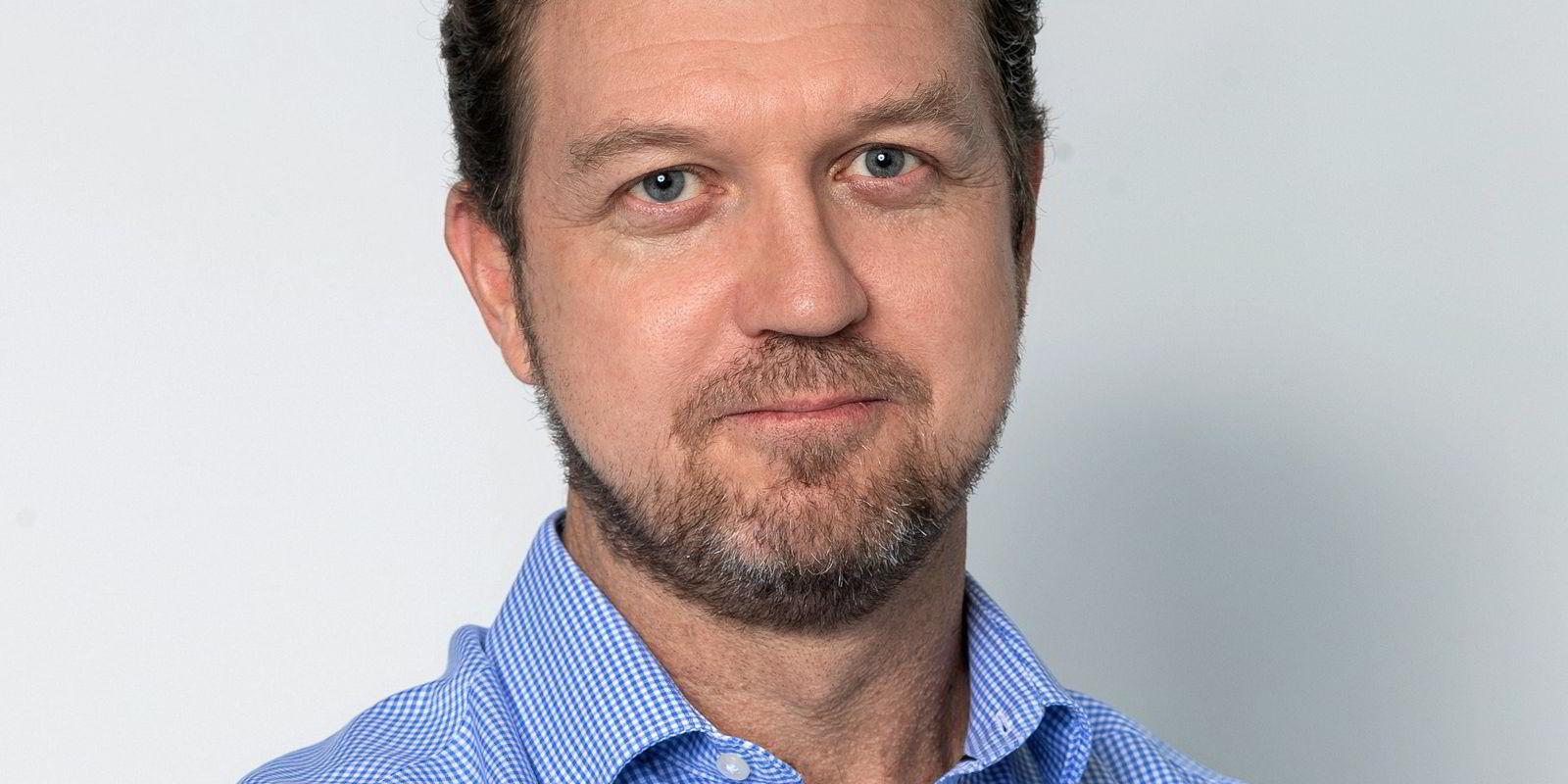Miner Anglo American has taken delivery of its first LNG-fuelled capesize bulker.
The Shanghai Waigaoqiao-built 190,000-dwt Ubuntu Harmony (built 2022) is the first of 10 LNG-fuelled chartered bulk carriers that will help the company reduce CO2 emissions by 35% compared with conventionally powered ships.
The mining giant said the use of LNG will significantly reduce nitrogen oxides and particulate matter from vessel exhausts, while new technology eliminates the release of unburnt methane.
It is committed to reducing emissions from its ocean freight operations and to playing a leading role in shaping a more sustainable future for the maritime industry.
The fleet of chartered LNG-fuelled capesizes is a key component of the company’s ambition to achieve carbon neutrality for its controlled ocean freight by 2040, with an interim target to reduce emissions from these activities by 30% by 2030 — all part of its wider ambition to halve Scope 3 emissions by 2040.
Anglo American’s global head of shipping, Peter Lye, told TradeWinds that the Ubuntu Harmony loaded its first cargo of iron ore from its Kumba operations in South Africa last weekend and is on its way to China’s Qingdao port.
Peter Whitcutt, CEO of marketing business, said: “We are proud to see the Ubuntu Harmony begin its voyage transporting future-enabling products from our mines to our customers around the world.
“This milestone cements our vision to be a leader in low-carbon shipping, a natural extension of our commitment to achieve carbon neutrality across our operations by 2040.”
Nolitha Fakude, group director for South Africa, said the metals and minerals that Anglo American provides play an important role in helping key industries decarbonise.
“Transporting them in a sustainable way is a key part of this effort and the introduction of the Ubuntu fleet — named after the Zulu word meaning ‘humanity to others’ — helps us accelerate our transition to sustainable ocean freight,” she added.
Anglo American has a framework of initiatives to decarbonise its maritime activities, including energy-saving devices fitted to vessels, voyage optimisation software, and trialling and adopting alternative fuels, such as LNG, sustainable biofuel, green methanol, ammonia and — further down the line — hydrogen.





